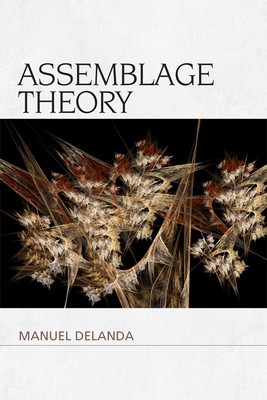
- We will send in 10–14 business days.
- Author: Manuel DeLanda
- Publisher: Edinburgh University Press
- ISBN-10: 1474413633
- ISBN-13: 9781474413633
- Format: 15.5 x 22.9 x 1.3 cm, minkšti viršeliai
- Language: English
- SAVE -10% with code: EXTRA
Reviews
Description
Manuel DeLanda provides the first detailed overview of the assemblage theory found in germ in Deleuze and Guattari's writings. Through a series of case studies, DeLanda shows how the concept can be applied to economic, linguistic, and military history as well as to metaphysics, science, and mathematics. DeLanda then presents the real power of assemblage theory by advancing it beyond its original formulation - allowing for the integration of communities, institutional organizations, cities and urban regions. And he challenges Marxist orthodoxy with a Leftist politics of assemblages.
EXTRA 10 % discount with code: EXTRA
The promotion ends in 23d.03:40:41
The discount code is valid when purchasing from 10 €. Discounts do not stack.
- Author: Manuel DeLanda
- Publisher: Edinburgh University Press
- ISBN-10: 1474413633
- ISBN-13: 9781474413633
- Format: 15.5 x 22.9 x 1.3 cm, minkšti viršeliai
- Language: English English
Manuel DeLanda provides the first detailed overview of the assemblage theory found in germ in Deleuze and Guattari's writings. Through a series of case studies, DeLanda shows how the concept can be applied to economic, linguistic, and military history as well as to metaphysics, science, and mathematics. DeLanda then presents the real power of assemblage theory by advancing it beyond its original formulation - allowing for the integration of communities, institutional organizations, cities and urban regions. And he challenges Marxist orthodoxy with a Leftist politics of assemblages.


Reviews